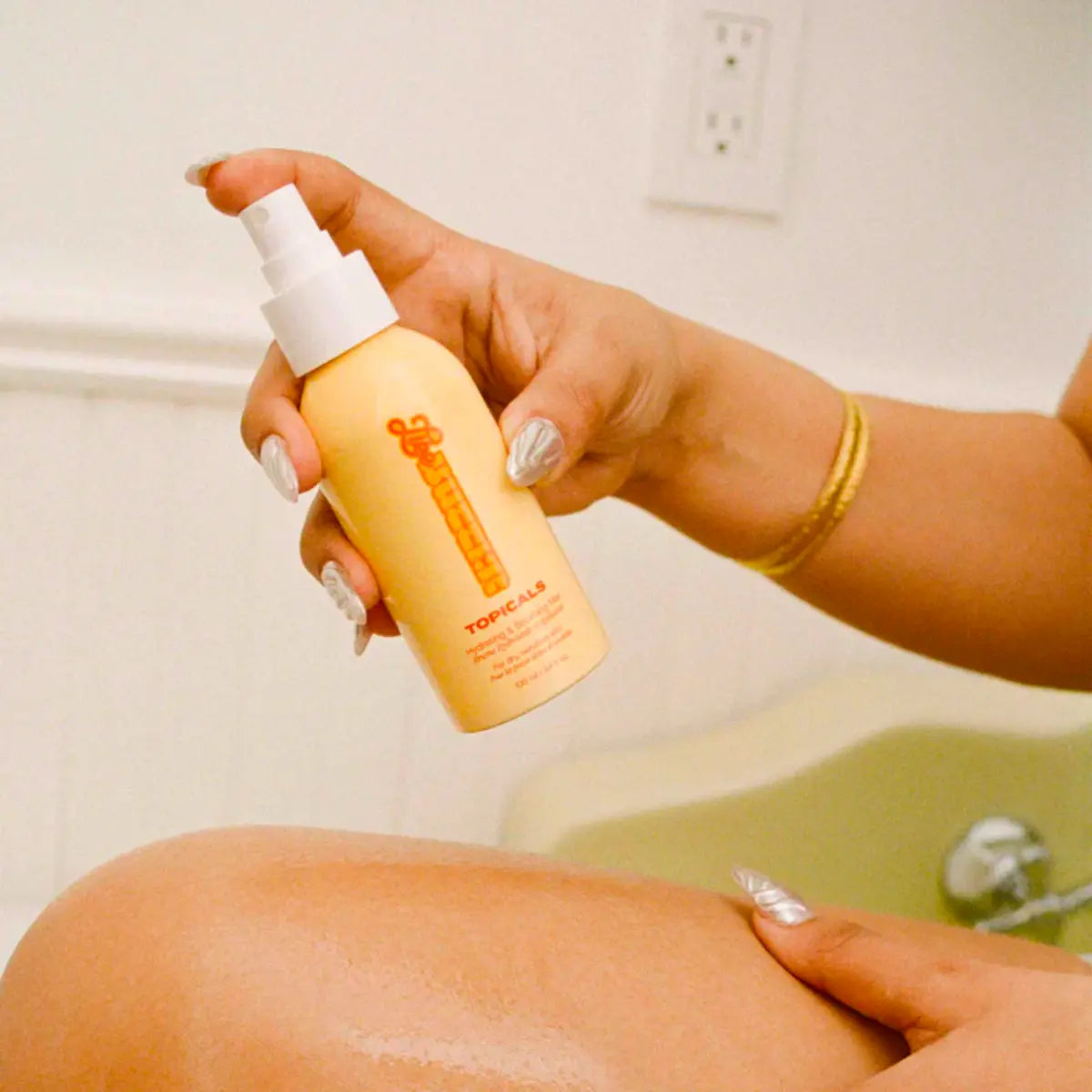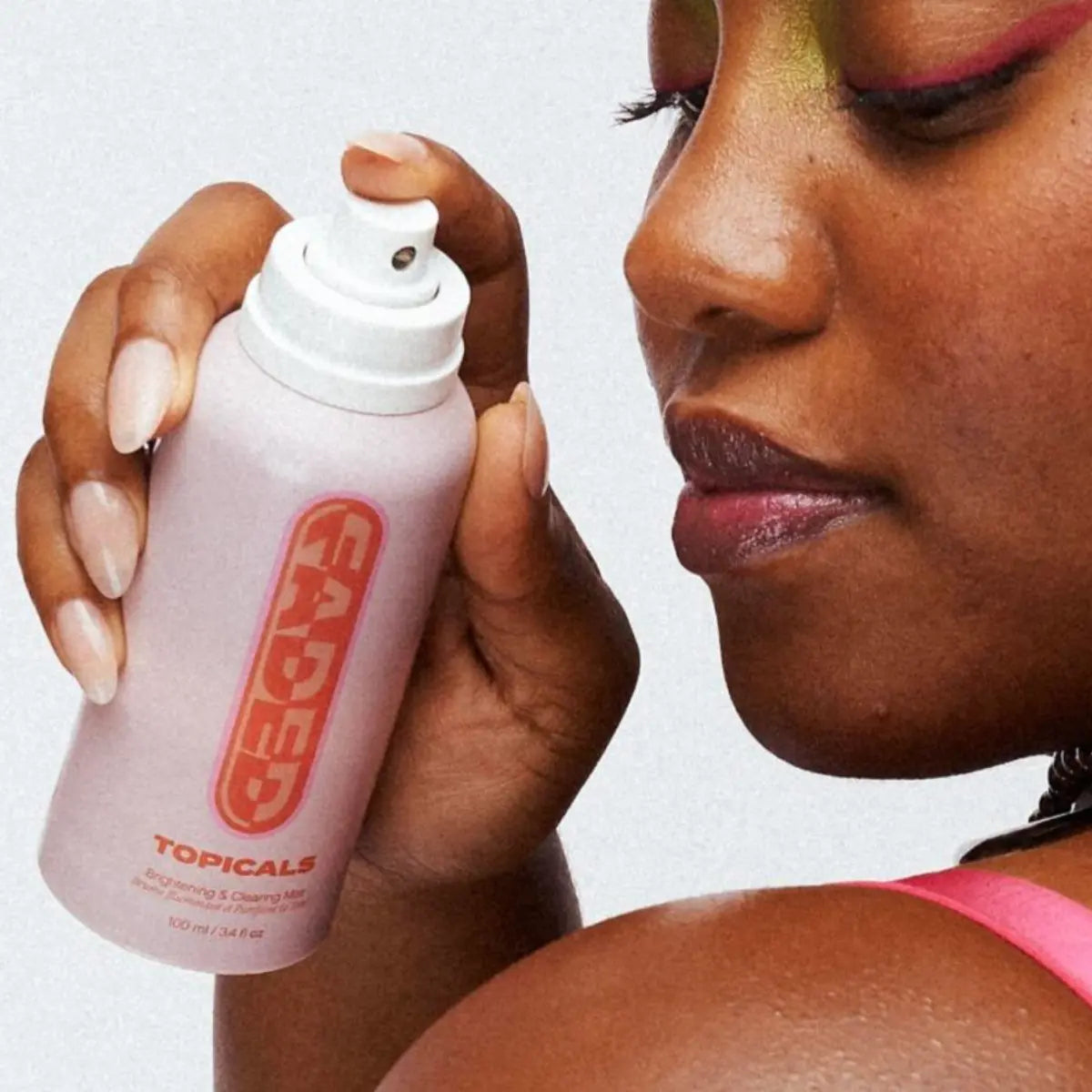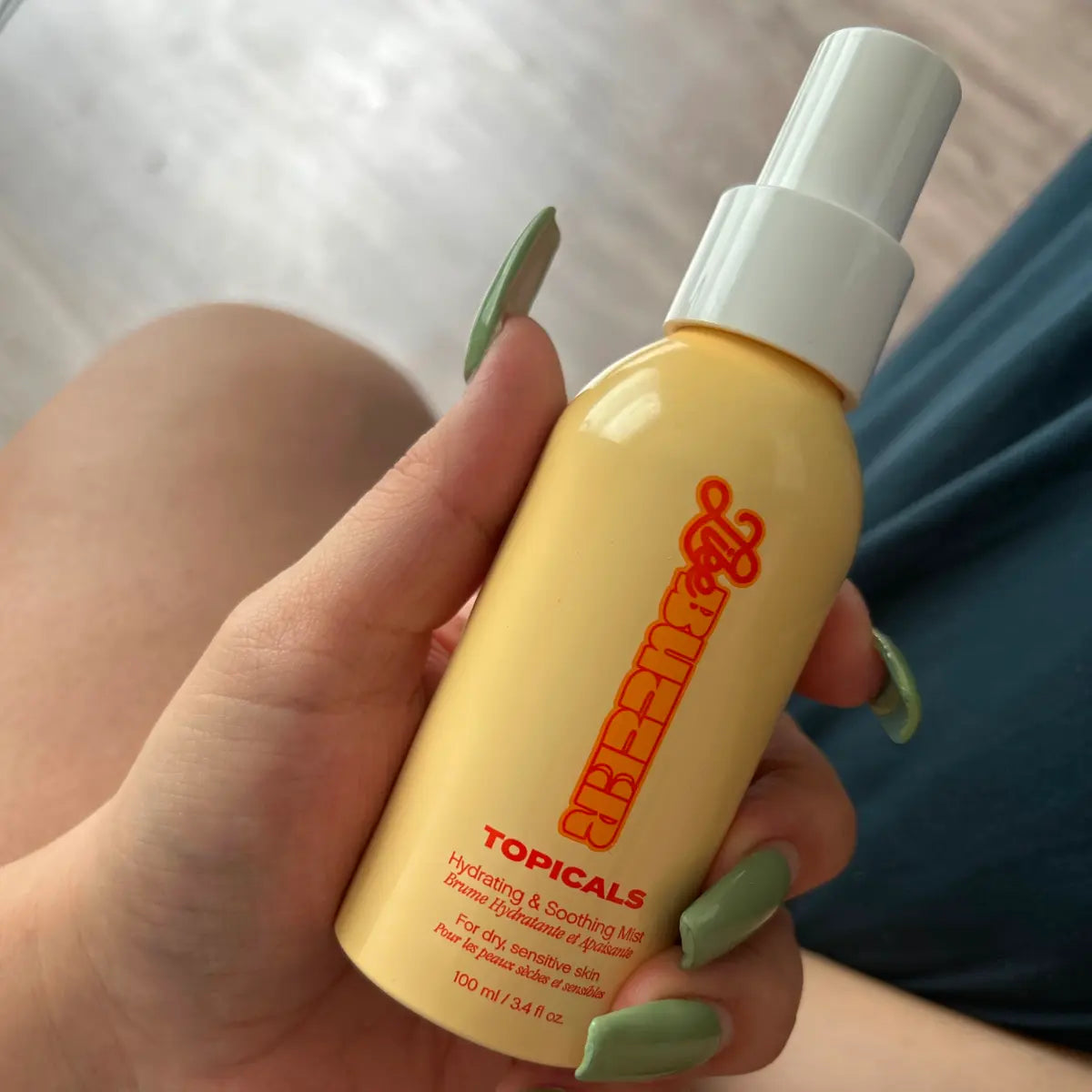Sensitive black skin is a unique and beautiful canvas that requires special attention and care. This type of skin is not only prone to common irritants found in many skincare products but also faces specific challenges such as hyperpigmentation, dryness, and inflammation more acutely. It's crucial to understand that skincare for black people involves more than just picking out generic products; it necessitates a deep dive into what truly works for melanin-rich, sensitive skin. Recognizing the ingredients and formulations that harmonize with sensitive black skin can make all the difference in achieving a radiant, healthy complexion.
Diversity and Sensitivity in Black Skin Tones
Recognizing Skin Tone Variability
Black skin tones exhibit a magnificent spectrum of shades, each with its unique characteristics and needs. This diversity means that skincare solutions must be versatile and adaptable. Understanding this variability is the first step toward effective care. It's essential to recognize that melanin-rich skin, while providing some natural protection against sun damage, also has its specific challenges. The key lies in embracing this diversity and offering skincare options that cater to the wide range of sensitivities and skin concerns within the black community.
Common Sensitivity Issues
Individuals with sensitive black skin often experience a range of issues, including dryness, irritation, and eczema, more intensely than those with less sensitive skin types. These problems are exacerbated by factors like harsh weather conditions, stress, and the use of inappropriate skincare products. Identifying and understanding these common sensitivity issues is crucial for developing a skincare routine that minimizes adverse reactions and promotes skin health.
Challenges in Skincare
Many products on the market contain irritants and harsh chemicals that can exacerbate sensitivity issues, leading to discomfort and damage. Furthermore, the lack of representation and tailored options for black skin in the skincare industry poses a significant challenge. It highlights the importance of advocating for and seeking out the best skin care products for sensitive black skin.
Importance of Skin Barrier Protection
A strong and healthy skin barrier helps to retain moisture, resist irritants, and maintain overall skin integrity. Using the best skin care products for black sensitive skin that reinforce this barrier, rather than undermine it, can significantly improve skin health. This involves selecting gentle, hydrating, and nourishing ingredients that support the skin's natural defenses, ensuring it remains resilient against external stresses.
Selecting Skincare for Sensitive Black Skin
Products to Avoid
Certain ingredients can do more harm than good, leading to irritation, dryness, and even damage to the skin's natural barrier. By being aware of what to avoid, you can protect your skin and keep it healthy and glowing. Here’s a detailed list of products that should be avoided to maintain the health and integrity of black skin:
-
Alcohol-Based Products: Products containing high concentrations of alcohol can severely dehydrate the skin, stripping away its natural oils and leading to increased sensitivity and irritation. This can disrupt the skin’s natural barrier function, making it more susceptible to environmental stressors. Sensitive skin, which might already be prone to dryness, can particularly suffer from the use of alcohol-based toners, cleansers, and astringents, exacerbating dryness and causing flakiness and redness.
-
Fragrances: Synthetic fragrances found in skincare and cosmetic products are common culprits behind allergic reactions and skin irritation. These fragrances can trigger redness, itching, and even dermatitis. The problem with fragrances is that they are often a mixture of various chemicals that can be harsh on the skin, making products labeled as "unscented" or "fragrance-free" a safer choice for those with sensitive skin types.
-
Harsh Exfoliants: While exfoliation is key to removing dead skin cells and promoting cell turnover, harsh physical scrubs and chemical exfoliants with high concentrations can be too abrasive for sensitive skin. They can strip the skin of its protective lipid barrier, leading to increased sensitivity, irritation, and even breakouts. It requires gentle exfoliation options that effectively remove dead skin cells without compromising the skin’s natural defense mechanisms.
-
Sulfates: Widely used in cleansers and shampoos for their foaming properties, sulfates (such as sodium lauryl sulfate and sodium laureth sulfate) can strip the skin of its essential oils. This leads to dryness, irritation, and an imbalance in the skin’s natural moisture levels. It's advisable to opt for sulfate-free cleansers that clean effectively without over-drying the skin, preserving its natural moisture balance.
-
Essential Oils: Despite being natural, some essential oils are highly concentrated and can be irritating to sensitive skin, causing redness, burning, and discomfort. It’s important to approach essential oils with caution, especially if you have sensitive black skin, as reactions can be exacerbated by direct application or high concentrations. Opting for products with diluted concentrations of essential oils, or avoiding them altogether, can help minimize the risk of irritation.
By avoiding these potentially harmful ingredients, you can reduce the risk of irritation and ensure your skin remains healthy, resilient, and radiant. Opting for gentle, fragrance-free, and nourishing formulations can make a significant difference in the overall condition of your skin, promoting a clearer, smoother, and more vibrant complexion.
Navigating Product Claims and Labels
The skincare industry is filled with products claiming to be the "best cream for dark spots on face-sensitive skin." However, not all claims are substantiated. It's important to become savvy in reading labels and understanding marketing jargon. Look for products with scientific backing and those recommended by dermatologists. Certifications like "dermatologist-tested" and "hypoallergenic" can be good indicators of a product's suitability for sensitive skin. Remember, the most expensive product on the shelf is not always the most effective. Focus on the ingredients and the needs of your sensitive skin to guide your choices.
Building a Skincare Routine
Gentle Cleansing Practices
Cleansing is a foundational step in any skincare routine, especially for sensitive skin. Opting for mild, hydrating cleansers can prevent the skin from becoming stripped of its natural oils, which are vital for maintaining moisture and preventing irritation. As emphasized previously, it’s important to choose cleansers that are free from harsh sulfates, fragrances, and potential irritants, ensuring the skin is left clean but not tight or dry.
Essential Hydration Techniques
Proper hydration techniques can prevent dryness, dullness, and the premature appearance of wrinkles. By following a few key practices, you can significantly enhance your skin's moisture levels and overall health. Below are some essential hydration techniques, elaborated to give your skin the best care possible.
-
Use a Hyaluronic Acid Serum: Hyaluronic acid is a powerful humectant known for its incredible ability to retain moisture, holding up to 1000 times its weight in water. This serum works by drawing moisture from the environment into the skin, ensuring deep hydration. It's especially beneficial for sensitive skin, as it helps maintain its plumpness and radiance without irritating. Incorporating a hyaluronic acid serum into your daily skincare routine can significantly boost your skin's hydration levels, keeping it moisturized and reducing the appearance of fine lines and wrinkles.
-
Layer Moisturizing Products: To maximize hydration, it's advisable to layer your moisturizing products correctly, starting from the thinnest to the thickest consistency. This technique ensures that each product is absorbed optimally, allowing the skin to benefit from each layer's unique properties. Begin with light, watery serums to quench the skin's thirst, follow with emulsions or lotions to add another layer of moisture, and seal everything with thick creams or oils to lock in the hydration. This layering method is particularly effective, which often requires additional moisture to stay radiant and healthy.
-
Incorporate Glycerin-Rich Products: Glycerin, like hyaluronic acid, is a humectant that attracts moisture to the skin, helping to maintain its softness and suppleness. Products rich in glycerin can draw water from the air into the skin's outer layer and form a protective barrier that prevents moisture loss. This ingredient is gentle enough for a skincare routine for sensitive black skin and can be found in various products, including cleansers, toners, and moisturizers. By using glycerin-rich products, you can help your skin achieve a balanced level of hydration, making it look and feel healthier.
-
Opt for Products with Ceramides: Ceramides play a crucial role in reinforcing the skin's natural barrier, protecting against moisture loss, irritants, and environmental pollutants. They are lipid molecules found in the skin's outer layer that help retain moisture and ensure the skin remains hydrated. Products containing ceramides are essential for sensitive skin, as they help to repair the skin barrier, prevent dryness, and maintain the skin's natural defenses against external aggressors. Incorporating ceramide-rich products into your skincare routine can help keep your skin well-hydrated and resilient.
-
Drink Plenty of Water: While topical hydration is important, internal hydration plays a vital role in maintaining the health and appearance of your skin. Drinking adequate amounts of water throughout the day ensures that your skin is hydrated from the inside out, supporting its elasticity, reducing toxin buildup, and promoting a healthy, radiant complexion. Staying well-hydrated can enhance the effectiveness of topical hydration techniques, further boosting the skin's moisture levels and overall health.
Maintaining well-hydrated skin is a multifaceted approach that involves both topical treatments and lifestyle habits. By incorporating these essential hydration techniques into your daily skincare routine and ensuring you drink plenty of water, you can help your skin thrive, keeping it radiant, healthy, and resilient against the challenges it may face.
Specialized Facial Products for Sensitive Black Skin
Finding the Best Toners
Selecting the best toner for sensitive black skin requires a focus on formulas designed to soothe, hydrate, and balance the skin's pH without stripping it of essential moisture. Look for toners containing aloe vera, rose water, or chamomile, which have calming properties to reduce irritation. Ingredients like witch hazel can be beneficial if they are alcohol-free, as they help minimize pores and control excess oil gently. A good toner for sensitive skin should leave your skin feeling refreshed and prepared for the next steps in your skincare routine, without any sensation of dryness or tightness.
Creams and Treatments for Dark Spots
Hyperpigmentation and dark spots can be particularly stubborn on sensitive black skin. Finding the best cream for dark spots on face-sensitive skin involves products that are potent yet gentle. Look for treatments formulated with ingredients known for their brightening capabilities, such as vitamin C, kojic acid, and licorice root extract. These ingredients can help fade dark spots without irritating them. Additionally, products containing niacinamide not only address hyperpigmentation but also strengthen the skin's barrier function.
Sunscreen Options
Mineral sunscreens containing zinc oxide or titanium dioxide are ideal for sensitive skin as they are less likely to irritate chemical filters. These sunscreens sit on top of the skin to physically block UVA and UVB rays, providing a protective barrier. Look for non-comedogenic formulas. It's important to choose a product that doesn't leave a white cast, which can be a common concern with mineral sunscreens on darker skin tones. There are now many formulations specifically designed to blend seamlessly into black skin, offering effective protection without compromising on aesthetics.
Holistic Skincare and Lifestyle Choices
Diet's Impact on Skin Health
Foods rich in antioxidants, such as berries, nuts, and green leafy vegetables, can help protect the skin from damage caused by free radicals. Omega-3 fatty acids, found in fish and flaxseeds, are essential for keeping the skin hydrated and reducing inflammation. Avoiding high-sugar foods and dairy products may also benefit those prone to acne or other skin sensitivities.
The Role of Sleep in Skin Repair
Sleep is essential for skin health, as it's during this time that the body repairs and regenerates skin cells. Ensuring you get enough quality sleep can help reduce the appearance of dark circles,
improve skin texture, and support the skin's natural healing processes. Aim for 7-9 hours of sleep per night and consider incorporating a nighttime skincare routine that supports skin repair, such as using products with retinol or peptides, which can stimulate collagen production and cell turnover.
The journey to finding the perfect skincare routine for sensitive black skin can be challenging, but armed with the right information and a holistic perspective, it's entirely possible to achieve and maintain healthy, beautiful skin. Remember to listen to your skin, be mindful of how it reacts to different products and environments, and don't hesitate to seek professional advice when needed. With patience and persistence, you can navigate the world of skincare with confidence, embracing your unique skin with the care it deserves.



